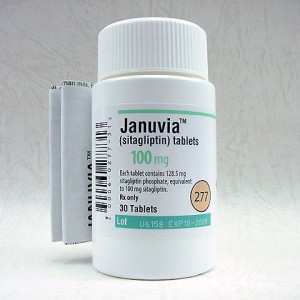In the realm of diabetes management, the quest for the most effective medication can often be overwhelming. With numerous treatment options available, a potential conundrum arises: Is it possible that Byetta performs better than Januvia in lowering glucose levels? The answer may be more multifaceted than one might initially assume.
Both Byetta (exenatide) and Januvia (sitagliptin) are popular choices among physicians treating type 2 diabetes. However, they operate through distinct mechanisms. Byetta, an injectable glucagon-like peptide-1 (GLP-1) receptor agonist, works by enhancing insulin secretion in a glucose-dependent manner, while simultaneously suppressing glucagon release. This dual approach culminates in lower blood sugar levels, making Byetta particularly effective as part of a comprehensive diabetes management plan.
In contrast, Januvia, a DPP-4 inhibitor, functions by prolonging the action of incretin hormones that regulate insulin and glucagon levels. While it undoubtedly lowers glucose levels, its efficacy may not be as pronounced as that of Byetta. Research indicates that patients on Byetta often experience more significant reductions in HbA1c levels compared to those on Januvia, raising intriguing questions about patient outcomes and drug effectiveness.
One might ponder, what exactly accounts for this disparity in performance? Several factors may come into play. Firstly, the nature of their administration can influence patient adherence and response. Byetta’s injectable form may initially deter some individuals, but it has been associated with weight loss, an attractive benefit absent in Januvia. Weight loss, a prominent concern for many type 2 diabetes patients, can significantly enhance overall health outcomes.
Moreover, the pharmacodynamics of Byetta lead to a more substantial postprandial glucose reduction, offering an immediate response after meals. This characteristic might resonate with those who struggle with blood sugar spikes throughout the day. As a result, patients transitioning to Byetta may find themselves achieving better glycemic control, steering clear of the frustrating rollercoaster of fluctuating glucose levels.
However, it is essential to acknowledge individual variability. What works wonders for one patient might not yield the same results for another. Always seek personalized medical advice for an optimal treatment plan. Physicians often recommend lifestyle modifications in conjunction with medication, ensuring a holistic approach to diabetes management.
In conclusion, while Byetta shows promising superiority in reducing glucose levels compared to Januvia, the choice of medication should ultimately reflect the unique circumstances and preferences of each individual. Navigating the complexities of diabetes treatment can be a formidable task, but understanding the nuances between these two medications can empower patients to engage in informed discussions with their healthcare providers.
